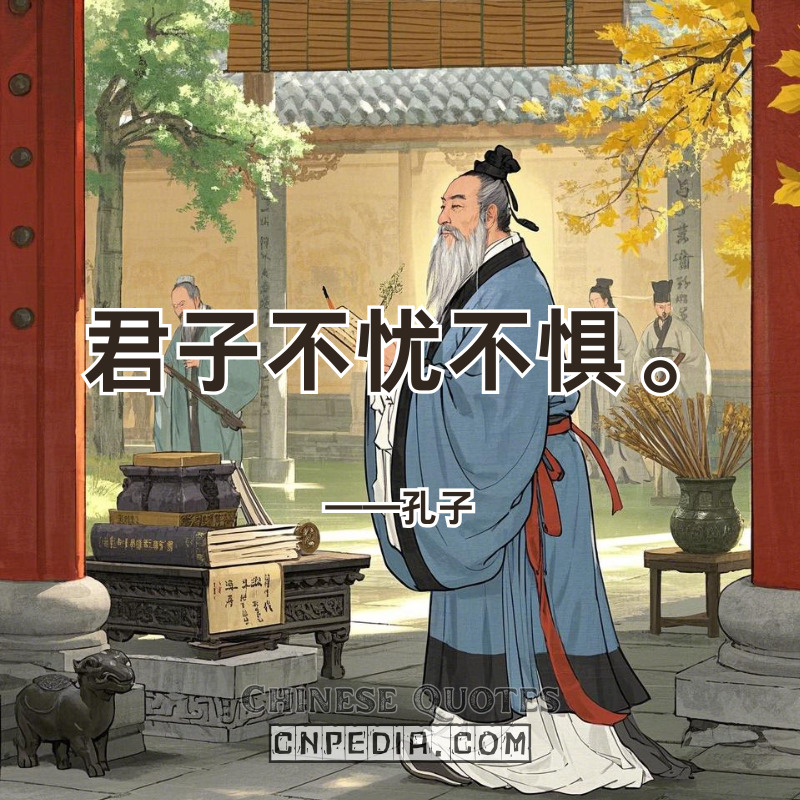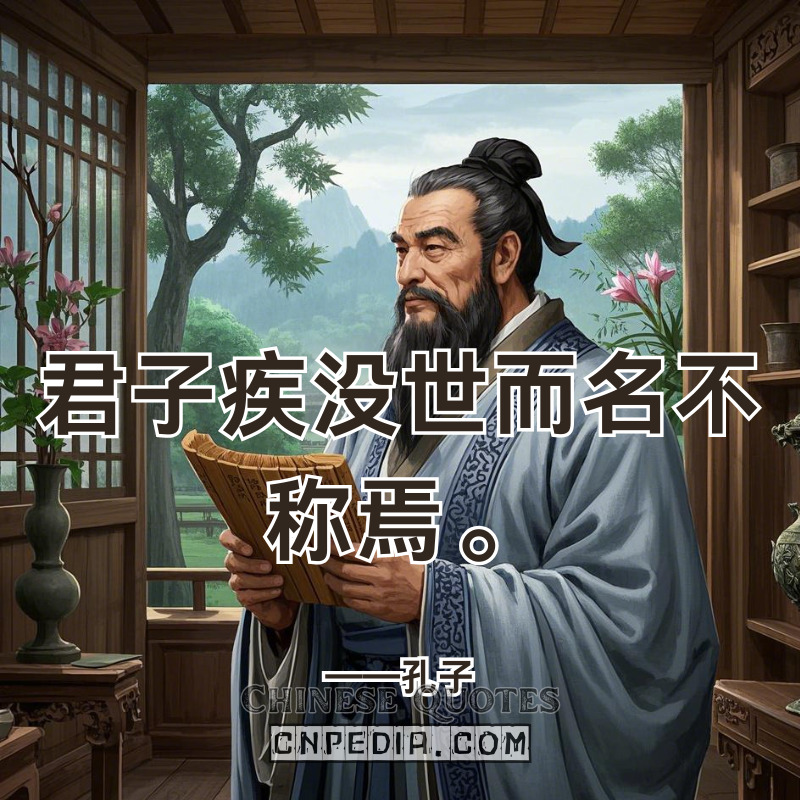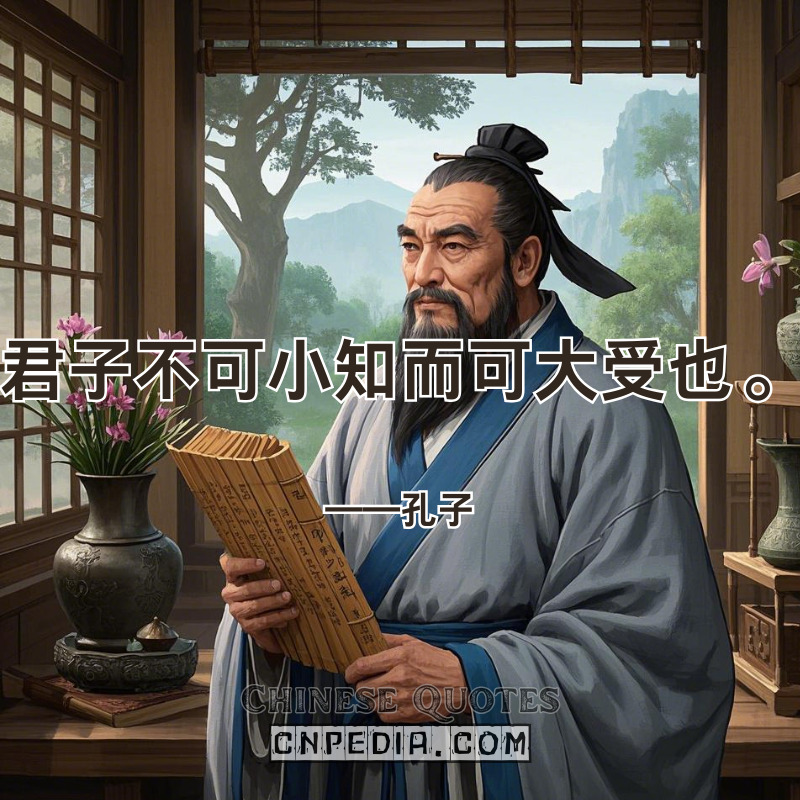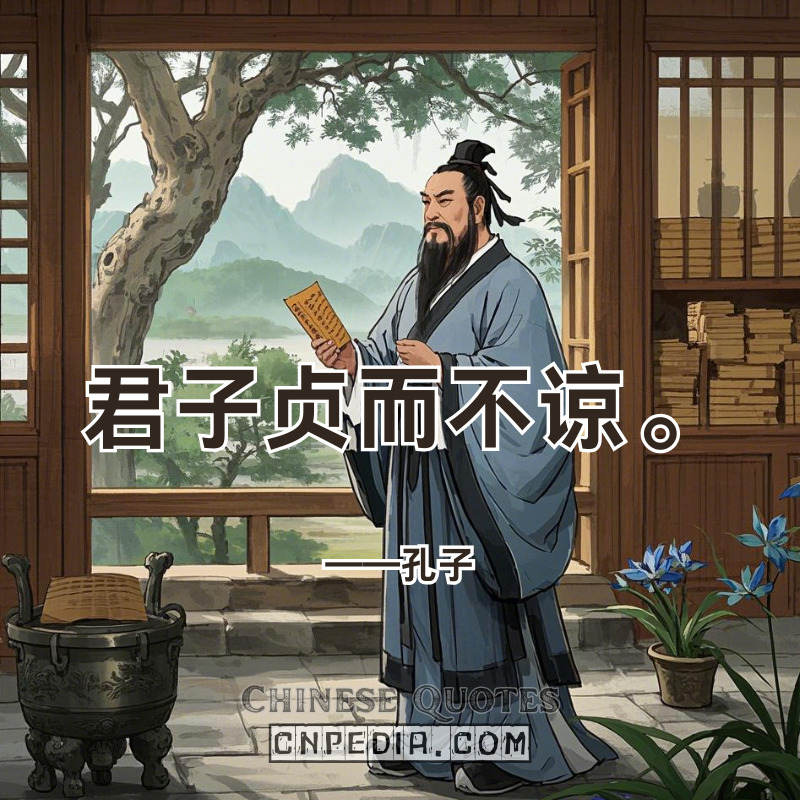人能弘道,非道弘人。——孔子
(rén néng hóng dào, fēi dào hóng rén — Kǒngzǐ)

Translation: “Humans magnify the Way—the Way doesn’t magnify humans.”
Explanation:
Confucius’ maxim 人能弘道(rén néng hóng dào) 非道弘人(fēi dào hóng rén) reframes ethics as human-centric praxis. First, the character 弘(hóng) (“to magnify”) structurally resembles hands stretching a bowstring—a metaphor for humanity’s role in tautening abstract principles (道(dào)) into actionable reality. This contrasts with Laozi’s cosmic 道(dào) that “nourishes without claiming,” positioning Confucianism as a call to ethical craftsmanship.
Second, this anthropocentric Daoism inspired Sartre’s existentialist maxim “existence precedes essence.” Where Laozi’s 道(dào) flows like water, Confucius’ 弘(hóng) demands human chiseling—akin to sculptors revealing form within marble. Modern startups operationalize this through “founder-market fit”: entrepreneurs like Musk magnify (弘(hóng)) electric vehicle adoption (道(dào)) through relentless iteration rather than waiting for market forces.
Third, the philosophy challenges passive spirituality. Buddhist “non-attachment” and Daoist “wuwei” (non-action) differ from Confucian 弘(hóng)’s activist mandate—a distinction now informing AI ethics debates. Google’s PAIR initiative trains engineers to actively “pull” ethical frameworks into machine learning models rather than assuming algorithms self-correct.
Finally, this ethic reshapes leadership models. GitHub’s open-source communities exemplify 人能弘道(rén néng hóng dào)—individual contributors collectively amplifying (弘(hóng)) coding standards (道(dào)). A 2023 survey showed projects with active maintainers had 4x longer lifespans than passive ones, proving human agency sustains digital ecosystems.








——Records-of-the-Grand-Historian-Biographies-of-the-Money-makers.jpg)
——Records-of-the-Grand-Historian-Biographies-of-the-Money-makers.jpg)
——Records-of-the-Grand-Historian-Biographies-of-the-Money-makers.jpg)
——Records-of-the-Grand-Historian-Biographies-of-the-Money-makers.jpg)
——Records-of-the-Grand-Historian-Biographies-of-the-Money-makers.jpg)
——Records-of-the-Grand-Historian-Biographies-of-the-Money-makers.jpg)